
In this short ghost story with a twist ending, a man, haunted by dark memories, spends forty years living alone on an isolated farm. One autumn day, he discovers another presence in his home that forces him to face the secrets of his past.
One
Night. Thick and black, as if the earth had banished the moon forever. Breathing in the darkness, a solitary man knelt in the dust. Around him, the charred remains of a roofless barn stood grim and silent. Once again, he has returned to the place where she fell. On this day, her birthday, an icy November wind cut through his worn and faded flannel shirt, chilling him to the core. Shivering, he closed his eyes, inviting the cold to engulf him while the muscles in his face strained with the intensity of his thoughts. This was fitting—that he should feel in his skin and his bones what he felt in the darkness of his soul.Tears fell, freezing like rivers of ice intothe cracked lines of a wizened face. Frozen like his spirit so many years ago.
Silently, he bowed his head, touched the ground before him, and wept.
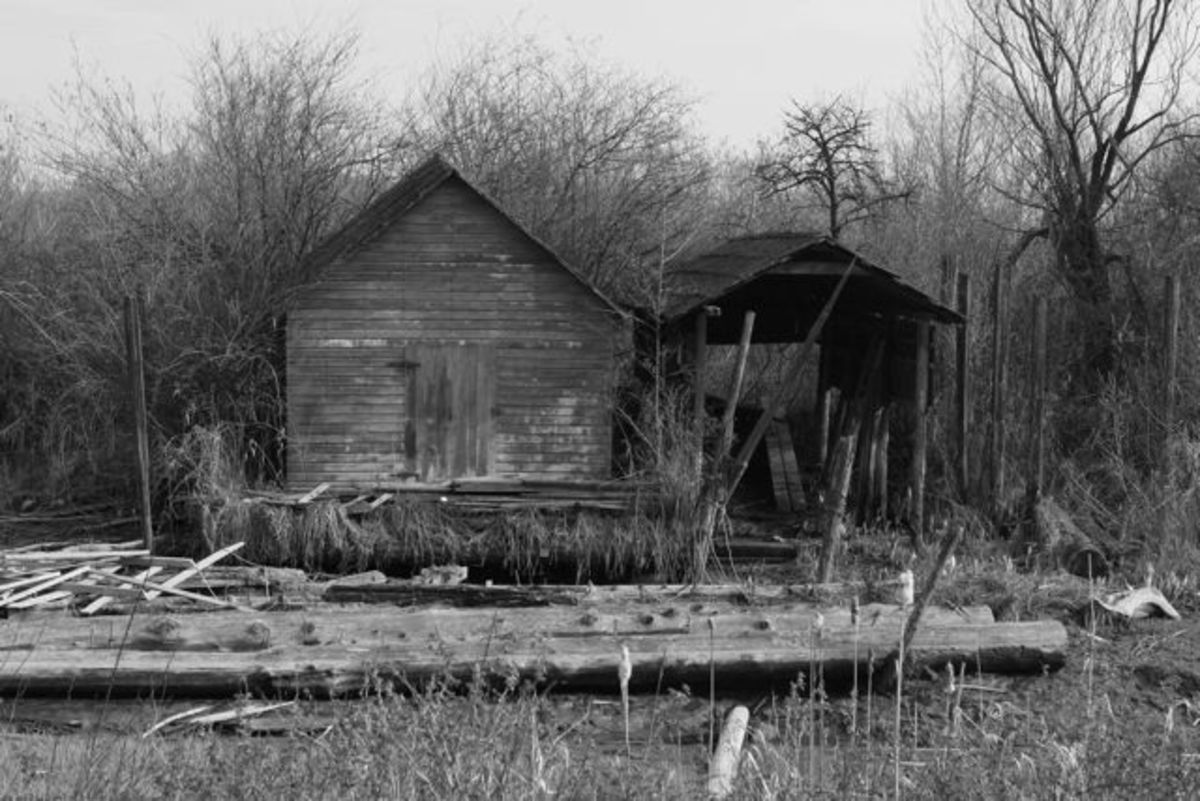
Source
Two
At the edge of his land, with the late afternoon sun sinking down behind him, Tom knelt. He reached deeply into the rich black earth, still warm and moist despite the chill in the wind. His soft brown eyes, normally dulled by the wear of years spent in dark contemplation, glimmered for a moment as they had often done in the days of his youth—a pleasant dream half remembered. Tom stood, and looked out the small patch of freshly-turned land, nestled deep in the middle of a field long-since forgotten and overrun with wild grasses which were only now showing the soft brown of winter’s sleep. He stood for a moment with a handful of earth in his hand, breathing in silence, or, perhaps, in prayer.
In his mind he saw the fields: acres and acres covered in rich soil, rolling from the light forest of cottonwoods to the north to well beyond the hills stretching across the horizon to the west. Much like him, the land had breathed with the life and energy of activity then. Did the land remember it too? The sound of children running through its fields? Did it still feel the loving hands of his mother and father as they poured their lives into the dirt to quench its thirst? Had it shared in the peace they found in their labor? Could it still hear the echoes of that peace as it resonated in the work of his own hands this very day?
As these thoughts washed over him, Tom raised the bit of dirt in his hands to breathe in its fragrance. “Still sweet,” he whispered, “still home.” He crumbled the dirt in his hand and allowed it to fall back to the earth. “It will keep now. Keep for another long winter.”
Tom brushed his hands together and turned to walk back to the farmhouse through the delicate light of an autumn dusk. Years ago, Tom would have seen poetry in the way the sunset painted its light over this gentle landscape, and the spark of life burning in his eyes would have grown to a flame. Time, however, had proved too heavy a burden, quickly dampening the faint glimmer in his eyes.
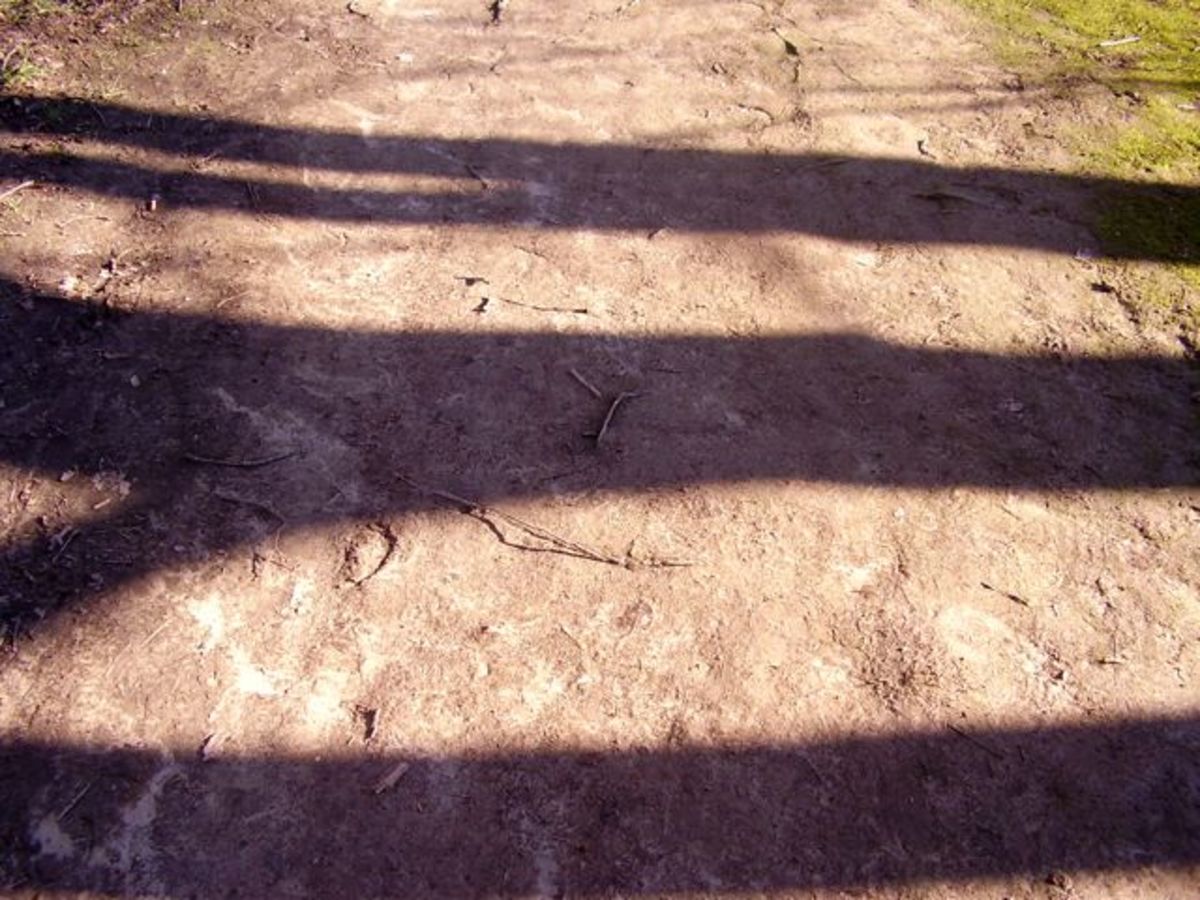
Source
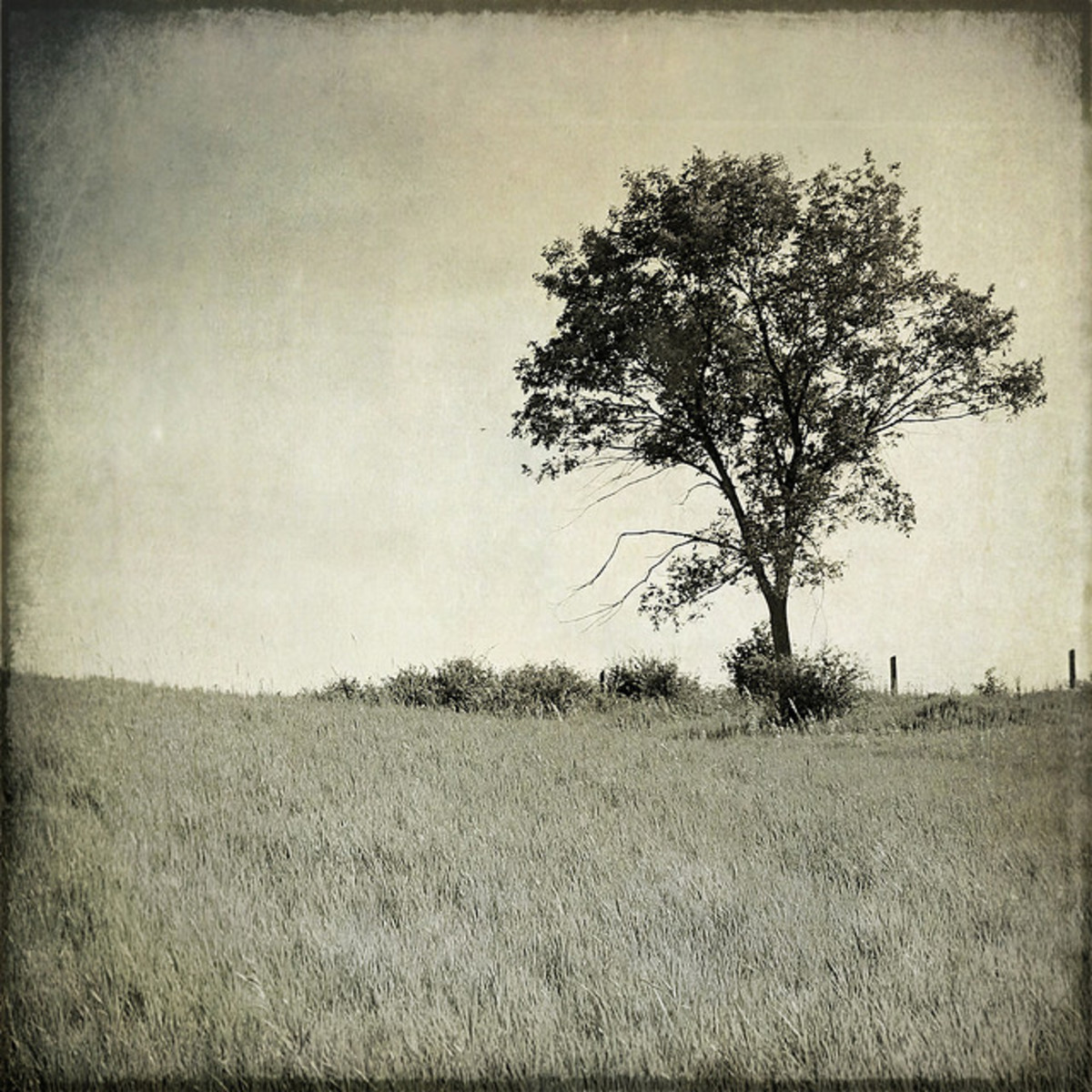
Source
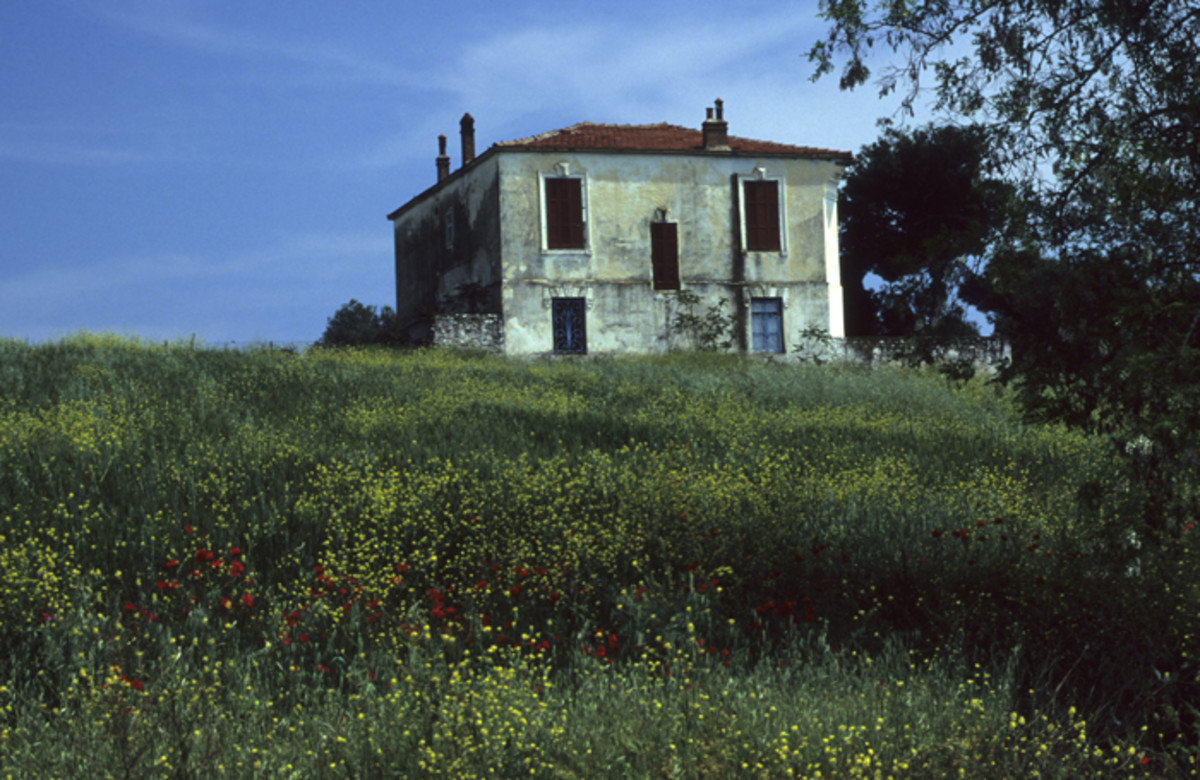
Source
Approaching the back porch of the farmhouse, Tom stopped. The shadow. Again. Tom sighed deeply. He had forgotten. There, barring his way to the door, lay the long shadow of the tree. Looking up, he saw it: a lone cottonwood tree set high on a hill, silhouetted by the setting sun. Walking right up to the line of its darkness and setting his feet in place, Tom watched the shadow swirl with the phantom memories of smoke and flame. “Damn,” he thought. “I always forget. Why must your shadow fall here? Three days every year.” Tom chuckled dryly. “The three days a year when You insist on reminding me.”No matter how often he might pray that the world would just pass over these days, or stop altogether, time moved relentlessly forward. “You just won’t let go.” Tom sighed. “But Icould. I wonder what would it be like if I did?”
Shaking his head to disperse his dark thoughts, Tom whispered, “At least it passes quickly now. At least I’ve learned to let it pass.” It was a lie, of course. He knew it.
With a resigned breath of determination, Tom stepped into the shadow, opened the door to the whitewashed farmhouse, and walked inside. He tried not to see the kitchen through eyes still charged with remembrance—tried and failed. Tom looked on a room where the gentle colors of twilight were invited in to paint their warmth over life and family. Whenever this memory lived in him, he felt alive, but the feeling was painful—too deep and sharp, even after so many years.
Closing his eyes tight, he struggled to take control. Opening them, he returned to the safety of life as it was: a shuttered room where the light from a dingy lamp in the corner shed an off-yellow glow that cast a reassuring flatness across the room. No accents. No highlights. Nothing to disturb the visual silence.
A short time later, Tom sat down at the plain, timeworn table to eat his plain, timeworn dinner. His ritual. Silent, simple, and blissfully predictable.
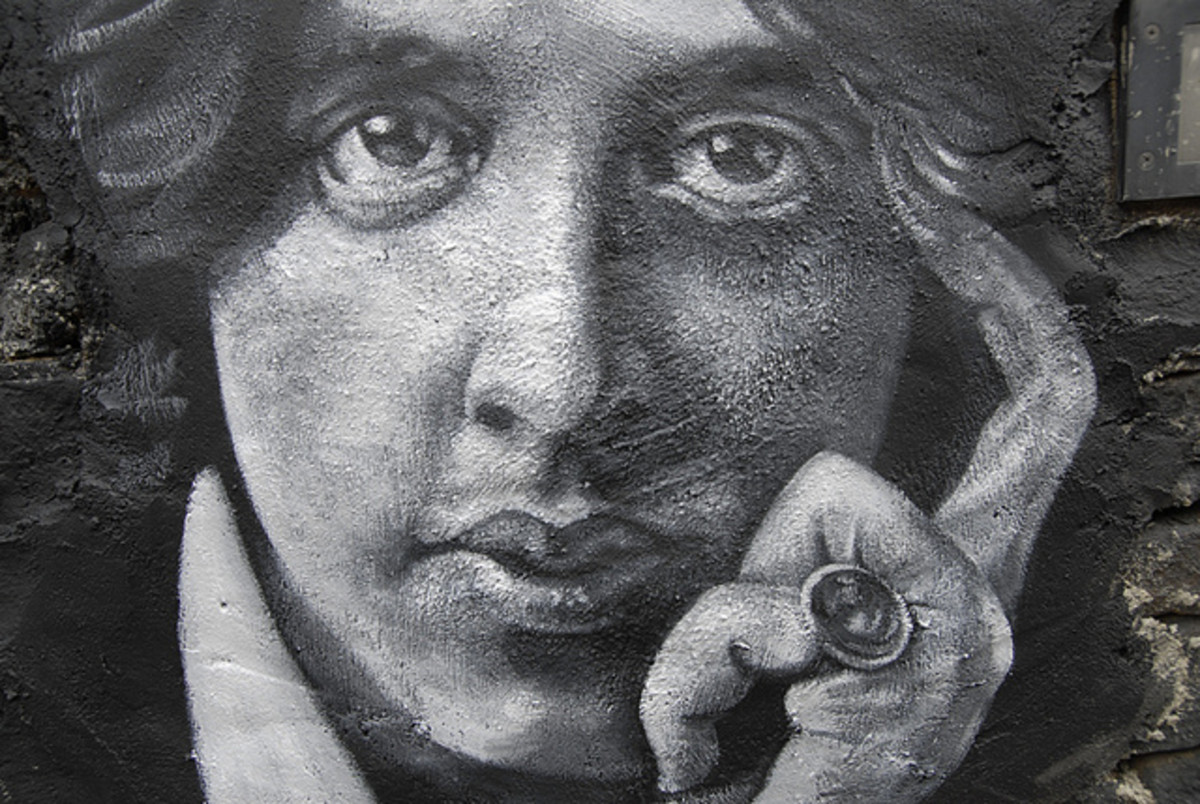
A portrait of Oscar Wilde. | Source
Three
“So what are we going to do?” asked Charles, his voice grave. The Literary Master’s Circle had gathered once again in Tom’s attic for its regular meeting—every third day, without fail. Though sunlight cascaded down through the open windows spreading a warm glow throughout the room, it could not overcome the palpable heaviness that weighed on them today. Centered on the oval table around which they gathered lay an old copy of The Picture of Dorian Gray by Oscar Wilde. The volume was open, its binding cracked and frayed, and its pages slightly askew.
“How much can we still read?” ventured Charlotte, her voice quiet.
“The ink has been fading for years now,” said Tom. “I can no longer make out all of the words.” Gazing at the book with a distant look in his eyes, Tom reached out to touch the loose pages before him with a soft, slow hand, much like a father might reach out to touch the face of a dangerously ill child.
“My deepest regrets, Tom,” said William. “I fear our companion is failing.”
Tom looked up at William’s face. The coy smile and clever eyes he found there, frozen in time on the canvas of his portrait, seemed very out of place with his gentle words. Still, Tom was proud of that one—the first time he had painted one of his friends in a way that seemed to capture the spirit of the man, William Shakespeare. There had been a picture to follow in the encyclopedia, but still, it was a good likeness. Around the table, the other portraits looked on as well: Charles Dickens, Charlotte Bronte, Fyodor Dostoevsky, Franz Kafka, Walt Whitman, and Oscar Wilde. A few more faces lay unfinished off in the corner leaning against the attic wall. Normally, these faces comforted him, but their frozen expressions, however well or poorly done, only served to make him feel very much alone today.
“We can keep his portrait, you know,” suggested Fyodor. “We could hang it up on the wall to remind us of him.”
Just down the stairs from where Tom sat conversing with his paintings was a simple bookcase, old and lovingly carved. On the bookcase were precisely sixty-three books. Tom knew this. He had read them all—repeatedly—even the bad ones. Now there were sixty-two.
Tom looked at the broken copy of Picture of Dorian Gray for a long time. Then he raised his eyes to the portrait of Oscar, arranged just between Charles and Walt. “All right,” Tom sighed. “We’ll return his words to the earth. He’d like that. And we’ll hang his portrait in…”
The sudden sound of crashing furniture being overturned below interrupted him. “Ouch!” came the sharp cry of a woman’s voice.
Tom’s heart stopped.
“What was that?” Standing quickly, the chair in which he had been sitting flew back into the rough canvas frames laying against the wall, bringing everything down with a crash. Cringing at the noise, he crept slowly across the room and down the stairs to investigate. Stunned, he stood watching as a young woman got up from the floor. She had apparently tripped over the living-room coffee table, and she held an old photo album in her hands—his photo album. His eyebrows came together, his face darkened, and his voice came low and quiet, “Who are you, and what are you doing in my house?”
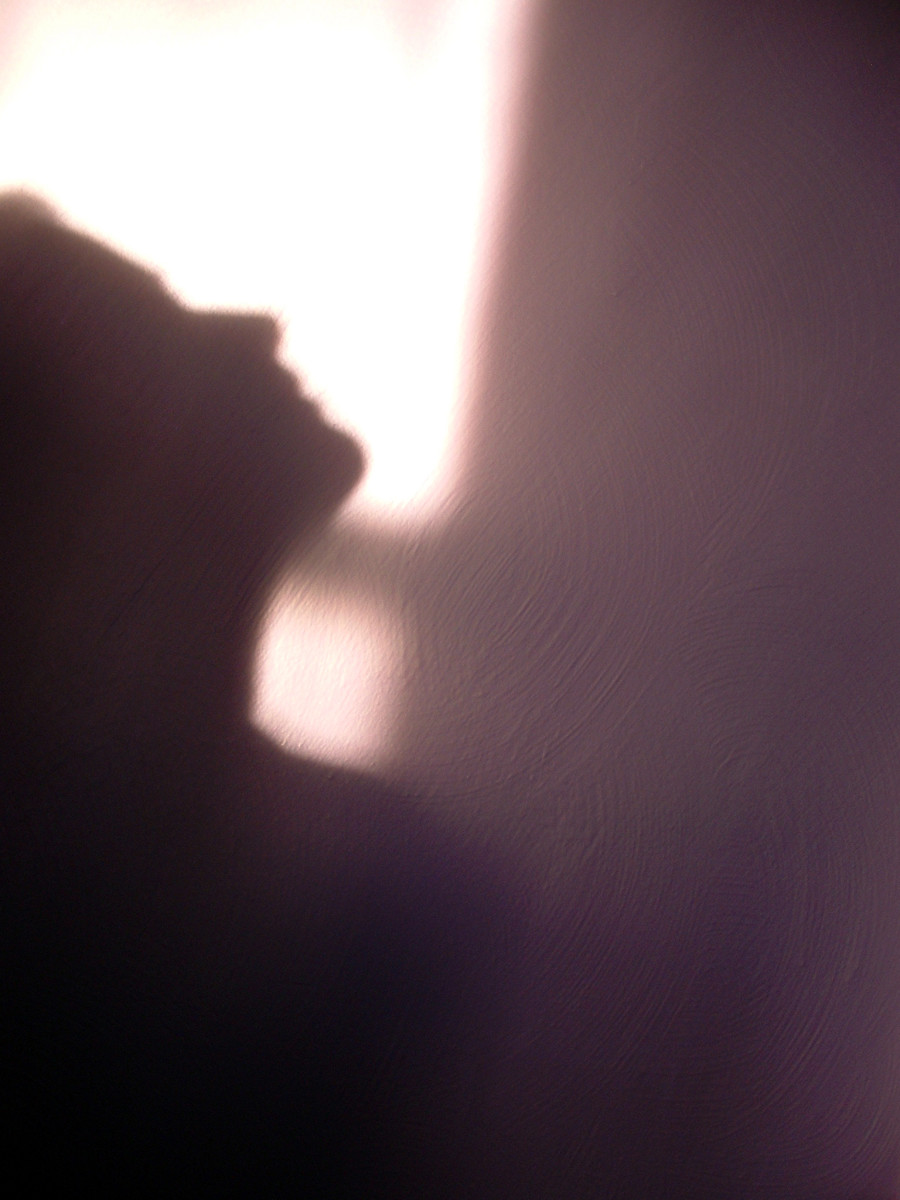
Source
The woman froze. Her green eyes, set in a pale oval face and surrounded by the gentle curls of deep brown hair, swelled with fear. Her mouth opened wide in a voiceless scream as her hand reached up to grasp at a silver necklace that was lost in the folds of her blouse. Tom moved down the staircase towards the woman with slow, purposeful steps. At his approach, she dropped the album to the floor, shimmered like the waves of heat in a mirage, and disappeared.
Tom stood for a moment, staring stupidly at the bookcase on the wall behind where she had been. The books were all still there, but they had been moved around, and the album, which normally sat shoved back out of sight, lay splayed face down on the floor. He looked around the room for a few moments, expecting something to move, but he saw only the simple silence of his living room. Moving to the bookcase, Tom picked up the fallen album, being careful to close it quickly, and returned it to its proper hidden place. Then, Tom sat in his chair. Realizing what he had seen, he began to tremble.
Tom tried to breathe, but the air came in irregular bursts and left too early in a rush. Rubbing his temples to ease his sudden headache, he whispered to himself, “I’m losing it.”Tom rubbed his eyes and ran his hand across his face. “Alone for forty years.” Tom chuckled darkly. “I guess I should be happy it took this long.” Tom struggled to find any explanation for what he had seen that didn’t suggest the loss of his own sanity, running his hand through his thick grey hair. Finally surrendering, he closed his eyes, bowed his head, and sighed. Time for bed.

